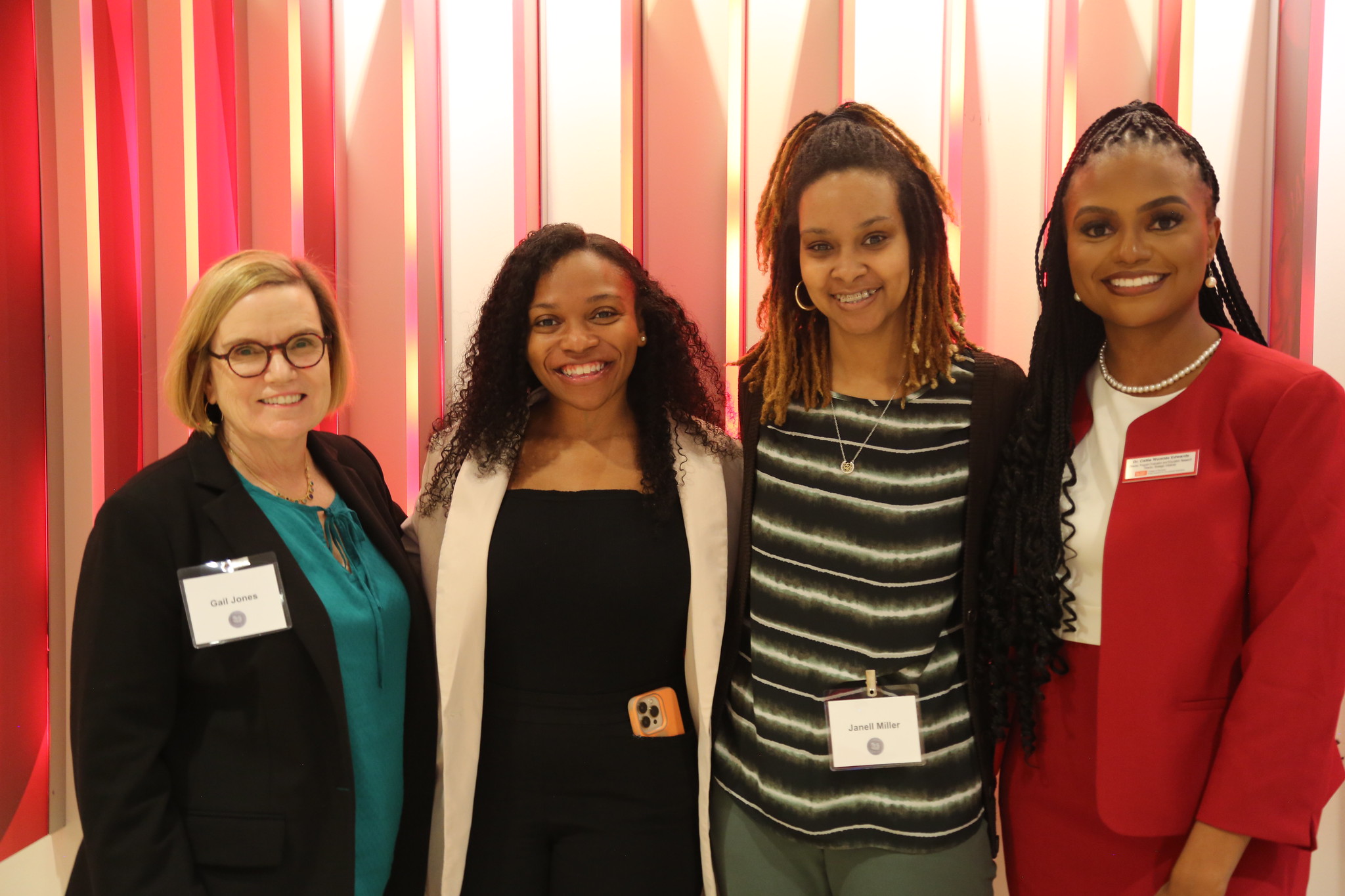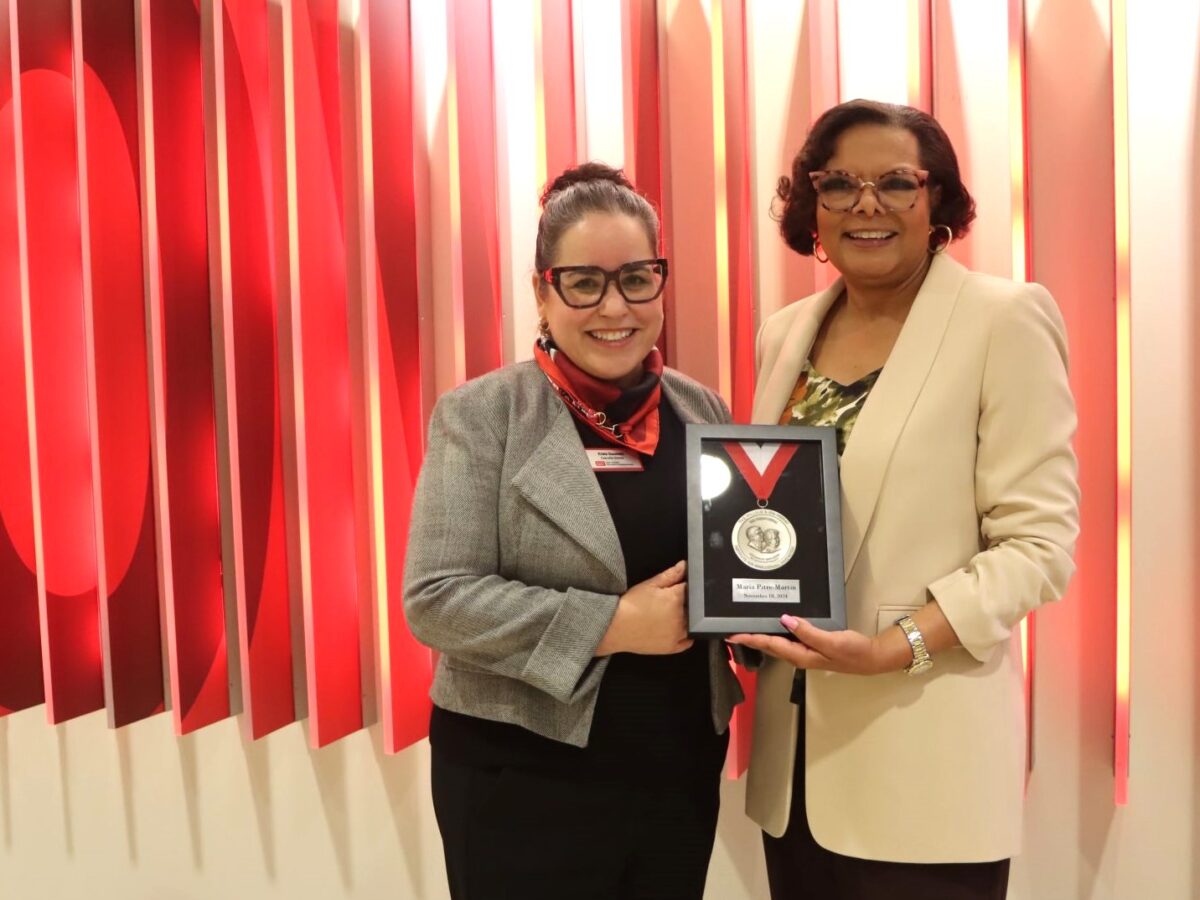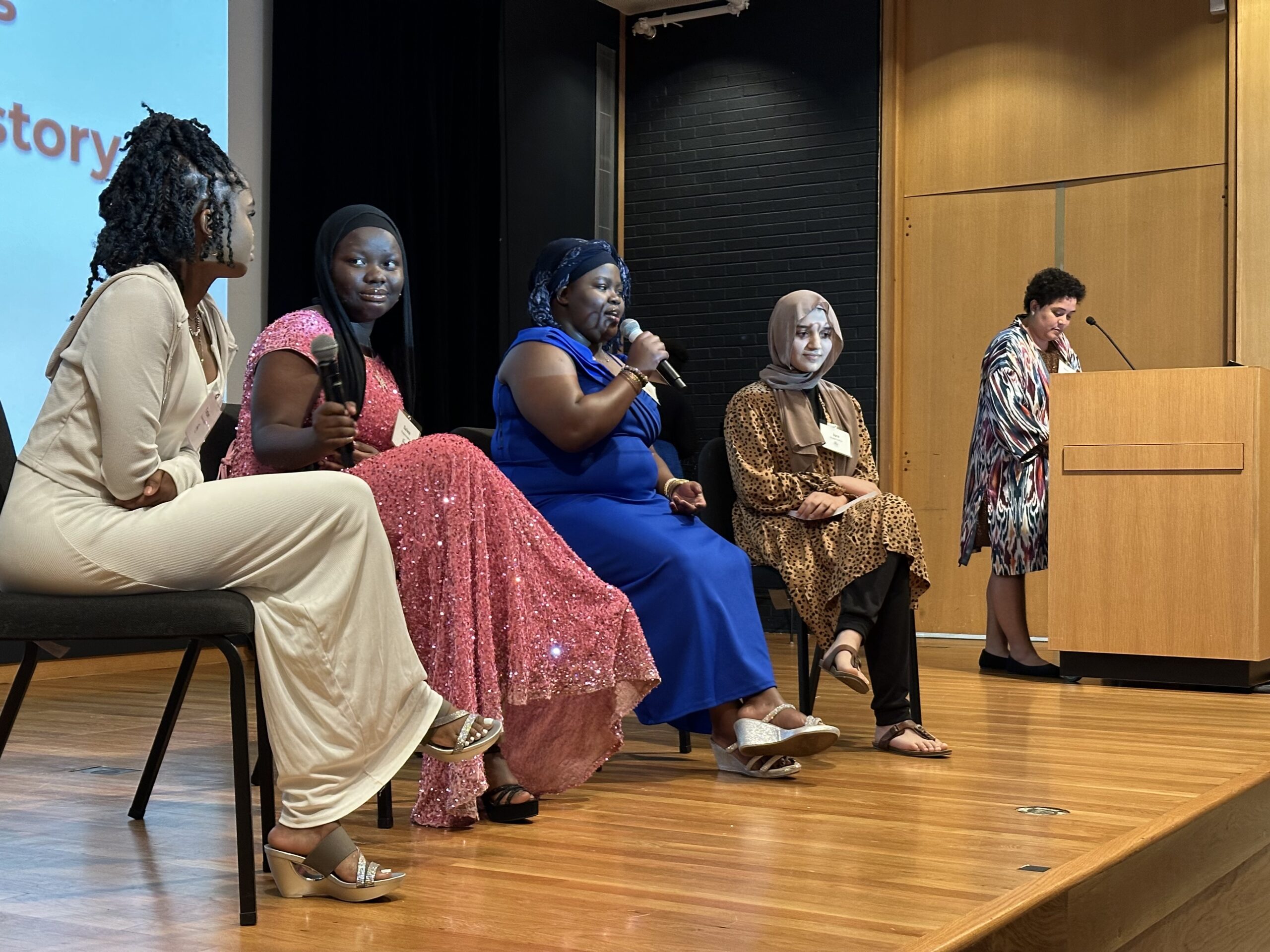Catalyst Grant Symposium Highlights Research Impacts on Students, Educators
Six research teams presented their work Oct. 1 during the virtual 2020 Catalyst Grant Research Symposium hosted by the Friday Institute for Educational Innovation in collaboration with the NC State College of Education. From helping a school district assess and act on the digital divide in their district to launching a writing program to help young, at-risk girls build self-compassion, determination and efficacy, this year’s Catalyst Grant researchers have made significant impacts in the lives of North Carolinians.
“Research is a fundamental source of innovation and new knowledge for our educational systems,” said Hiller Spires, Ph.D., Friday Institute executive director and associate dean in the College of Education. “We are excited to contribute to the educational research enterprise through the implementation of the Catalyst Research program, which we believe has potential to impact education in profound ways.”
The Catalyst Grant program was launched in 2018 with four projects in an effort to encourage research collaboration between faculty and staff at the Friday Institute and the College of Education. Both organizations contributed funds to support the program. A key feature of the program was to provide seed funds for faculty and staff to collaborate in developing innovative research that could subsequently be submitted for external funding. For 2019-20, six research teams were awarded these grants.
“It is exciting to see how the Catalyst Grant program has fostered productive collaborations between researchers at the Friday Institute and the College of Education,” said Karen Hollebrands, Ph.D., interim associate dean for research and innovation at the College of Education. “Together they are conducting studies that deepen our understanding of student learning and address challenges many educators are now facing.”
See below for highlights from each of the six research presentations.
[panel heading=”Developing Games to Teach Students Artificial Intelligence (AI)” headingtype=”h2″ type=”panel-primary” state=”closed”]NC State College of Education Assistant Professor Shiyan Jiang, Ph.D., and Teaching Assistant Professor with the Department of Computer Science Bita Akram wanted to develop a holistic curriculum and technology for high school students to learn how to problem solve using AI, with the secondary goal of inspiring them to explore a career in a STEM field.
“We both think that it is very important to create some background knowledge and skills for AI and machine learning for students starting early,” Akram said during the symposium. “[AI] is taking over society and some people might want to be directly involved in this area or might be customers. In both cases, it’s important for them to know what they are dealing with and then how can they be involved effectively.”
With the help of a Catalyst Grant award, the research team created stand-alone activities to see what worked best with students and then integrated it into their game-based learning environment. Their next step is to pilot the game with students from West Johnston High School in Benson, North Carolina. Learn more about this multimodal AI literacy project here.[/panel]
[panel heading=”Highlighting the Digital Divide” headingtype=”h2″ type=”panel-primary” state=”closed”]When Friday Institute Research Associate Erin Huggins and the Assistant Director of Media and Education Technology Resource Center (METRC) Laura Fogle planned how they were going to assess the digital divide in Durham Public Schools, they had no idea how much the awareness of the digital divide would increase in the spring and summer of 2020 due to the COVID-19 pandemic.
Remote learning magnified the needs for digital equity and inclusion that the research team had been assessing in Durham Public Schools (DPS) with their partner Digital Durham. Through their work distributing and analyzing surveys after two months of DPS students learning remotely, Huggins and Fogle shared startling findings during the symposium. Results showed 42% of students needed help accessing the internet in order to participate in remote learning, 85% of those students were minority students and approximately 28% of those families who needed help accessing the internet didn’t have access to reliable devices for each student in the home.
“The work we’ve done has already had a significant impact on Digital Durham,” said Fogle during her presentation at the symposium. “Just six weeks after creating a logic model, Digital Durham leveraged the new insights that we gained from that process to host a virtual convening about digital equity and inclusion.”
In addition to the convening, DPS also used these survey results to help make a decision regarding reopening for the 2020 fall semester.
During this evaluation, the research team saw multiple opportunities for further research and outreach including digital equity training for teachers and implications for remote learning instructional design. Learn more about this digital equity project here.[/panel]
[panel heading=”Providing Professional Learning in the Era of Fake News and Mis-information” headingtype=”h2″ type=”panel-primary” state=”closed”]In an era of fake news and low digital literacy, Associate Professor Meghan Manfra, Ph.D., and Instructional Design Lead Alex Dreier saw an opportunity to guide educators in developing a broader understanding of the importance of media literacy in education.
“We believe that media literacy is an essential skill for active citizenship in our democracy and therefore should be part of schooling and the school curriculum,” said Manfra during the symposium.
Using their Catalyst Grant, Manfra and Dreier developed an online module for educators to learn, develop and apply practical instructional strategies that they can use with their students to teach media literacy. The module explains the importance of media literacy instruction for K-12 students, helps educators understand the contemporary context of media literacy, and develops a working definition of media literacy. The research team will continue to recruit participants to pilot the module and get feedback to update it. They hope to find future funding opportunities to build the module into an online professional learning course. Learn more about this media literacy project here.[/panel]
[panel heading=”Utilizing Awe for Science Instruction” headingtype=”h2″ type=”panel-primary” state=”closed”]Awe, the feeling of reverential respect mixed with fear or wonder, has been a topic of interest in the museum world recently. Gail Jones, Ph.D., a professor of science education with the College of Education and a faculty fellow with the Friday Institute, was interested in researching educators’ experiences with teaching awe in order to inform the design of future science instruction.
Jones and her research team of College of Education faculty including Sarah Carrier, Ph.D., associate professor of elementary science education; Cesar Delgado, Ph.D., associate professor of science education; and Jill Grifenhagen, Ph.D., assistant professor of literacy education, used their Catalyst Grant to host a daylong virtual professional development workshop called “Bringing a Sense of Awe to Your Science Instruction” for 50 K-12 science educators across North Carolina. They also assessed teachers’ knowledge with surveys and interviews to find out their ideas and perceptions of awe.
“We’re analyzing the data with these themes that have been established as some of the fundamental categories of awe including ability, beauty, virtue, threat, as well as, some people experience awe as supernatural or religious kinds of components,” Jones said during her symposium presentation.
The research team hopes to develop strategies to use awe in teaching with the data they collected during this project to see if it would make a difference in students’ motivation and learning. Learn more about using awe to enhance science instruction here.[/panel]
[panel heading=”Amplifying Youth Voices” headingtype=”h2″ type=”panel-primary” state=”closed”]A Catalyst Grant helped the Literacy and Community Initiative (LCI) implement their most recent partnership with CORRAL Riding Academy, a nonprofit that equips adolescent girls in high-risk situations through a long-term, holistic program of equine therapy and education to prepare each girl with the skills, resources and opportunities to be successful.
“With the Catalyst Grant, we were able to launch the writing component of our framework at the CORRAL,” said LCI Co-Principal Investigator and Friday Institute Deputy Director Jose Picart, Ph.D., during the symposium. “Grounded in critical literacy framework, we partnered with the CORRAL staff to implement a 14-week writing curriculum designed to promote self compassion, self determination and self efficacy to a pilot group of 12 girls.”
Picart and Associate Professor and Friday Institute Faculty Fellow Crystal Lee, Ed.D., lead the LCI, a collaboration between the College of Education and the Friday Institute that partners with community-based organizations to examine and empower youth voices. Their mission is to amplify student voices through student publications, advocacy and leadership.
Through LCI’s preliminary findings, they have seen how the LCI curriculum provided the CORRAL girls with an intentional opportunity for healing and transformation through writing that helped them critically examine their past, present and future selves.
The Catalyst Grant not only helped LCI launch their new partnership but also aided them in receiving an external grant to sustain the CORRAL partnership for a second year. Learn more about LCI here.[/panel]
[panel heading=”Providing a Customized Survey Tool” headingtype=”h2″ type=”panel-primary” state=”closed”]Developing or finding a survey that meets the needs of administrators can be daunting. Now, there’s a tool to help district and school leaders collect the data they need to measure digital learning or remote learning implementation in their schools. Survey Tools, currently in BETA, was developed by a team of evaluators at the Friday Institute in 2019.
“At the Friday Institute, we create a lot of surveys and instruments for schools to use,” said Mark Samberg, Ed.D., director of technology programs at the Friday Institute. “Schools can distribute them through a tool like Google Forms and Qualtrics, but there are different ways to do that, and schools may not have the capacity to do it. The other thing is that there’s a need for schools to customize surveys and for us to want to collect the data from these surveys.”
Within Survey Tools, districts can create a customized survey that only includes questions focused on the elements and data that they want to collect. Once complete, survey administrators will receive a customized URL that they can distribute to their teachers or students. After survey responses are collected, administrators can view their survey results in charts on the platform.
With the help of their Catalyst Grant, Samberg and Professor Paul Umbach, Ph.D., were able to refine the Survey Tools platform. In the future, they would like to leverage the platform to provide other instruments for schools to use that are being developed at the Friday Institute and College of Education. Learn more about Survey Tools here.
[/panel]


